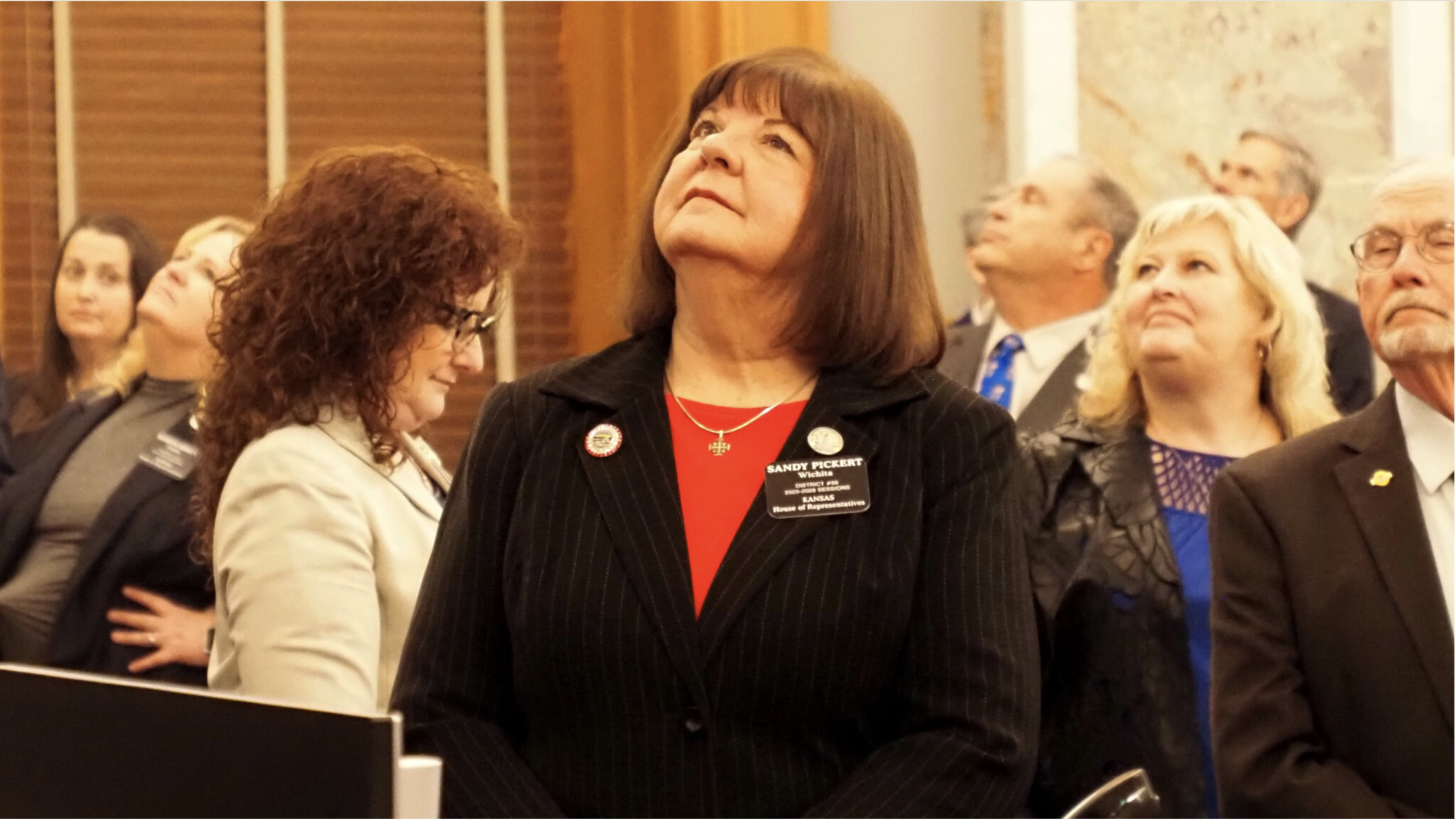
BY: ANNA KAMINSKI
Kansas Reflector
TOPEKA — Kansas lawmakers skewered the state agency that oversees nursing licenses, alleging it has contributed to the state’s nursing shortage and demanding action before the next legislative session.
At a Sept. 8 meeting of the House Select Committee on Government Oversight, legislators urged the Kansas State Board of Nursing to make substantial changes to policies, procedures and regulations that govern the state’s relicensing and disciplinary processes.
Legislators used words such as “perplexed,” “horrified,” and “egregious” to describe their feelings about the state nursing board and its leadership. They passed resolutions that are likely to guide future changes.
Rep. Sean Tarwater, a Stilwell Republican, hurled jabs at the board, which he described as having “no regard for human life.”
He accused the agency of being filled with “power-hungry individuals that are ruining people’s lives,” and he favored extracting some of the board’s $4 million budget to share with those he thinks have been wronged by the board.
Over months of hearings, the committee has listened to hours of testimony from health care professionals. The testimony detailed the nursing board’s delays in licensing, inadequate communication, leadership issues, dated technology, inconsistent fees for the same infractions, clerical errors, coercion, conflicts of interest, flawed investigations and an approach to discipline with “an attitude of guilty until proven innocent,” said Rep. Sandy Pickert, a Wichita Republican.
Pickert does not sit on the oversight committee. She is a nurse and has followed the committee’s hearings.
“Pandora’s box is open,” she said.
Brenda Sharpe, a board member, said the board agrees with some recommendations for change.
“This board would like more tools in its toolbox,” she said.
She also strongly encouraged the committee to consider facts and circumstances not available in an open forum, referencing the long list of testimony about individual disciplinary cases. She maintained the board has acted in good faith, taking into account facts and circumstances “that may appear one way to this group but, in fact, we believe are another.”
“I would never say we follow everything perfectly,” Sharpe said. “We’re human beings. The licensees are human beings. This is a human process. That’s where we’re at.”
Michael Schommer told the committee about his 23-year-old son, Connor, who is on the autism spectrum and was diagnosed with depression. Connor attempted suicide twice, Schommer said. It wasn’t until the family found a nurse, Ana Ahrens, and a therapist who discovered the perfect combination of medication and counseling that stabilized Connor, he said.
“You know, she has a unique, no-nonsense, stern yet compassionate method of getting his attention, and he would look her in the eye and respond to the questions she was asking him,” Schommer said. “She held him accountable for what he was doing and started to get through to him.”
But then Ahrens made an error while renewing her licenses online. The state nursing board revoked her prescribing privileges, and Ahrens couldn’t refill Connor Schommer’s medication.
Michael Schommer and his wife frantically tried to find another prescriber.
“It went about two weeks too far, unfortunately,” Schommer said. “And, I just — one day he got up and there he was walking through the house talking to the ceiling again for eight hours nonstop.”
That could have been prevented, Schommer said, expressing confusion about the nursing board’s procedures.
“Thank God we still have him today, and he’s doing much better,” Schommer said.
Schommer’s story was one of dozens, but its gravity struck legislators and underscored their crusade for change.
“He could’ve lost his son, and that’s serious,” said Rep. Barbara Ballard, a Lawrence Democrat.
The committee deliberated two resolutions that encouraged considering a grace period for nurses who are late to apply for relicensing, IT updates and regular digital notifications leading up to a nurse’s relicensing deadline. The committee also discussed changing the makeup of the state board, favoring a mix of legislative and gubernatorial appointments.
The resolutions allude to a bill for the 2026 session, but lawmakers urged the board to review its policies without legislative action. The committee also discussed the possibility of a future subcommittee that could provide further recommendations.
The nursing board is responsible for more than 70,000 Kansas nurses.
Maggie Ortiz, a nurse from Texas who advocates across the country for changing nursing regulations, said the issues Kansas is facing are not unique.
“The elephant in the room is the investigative process,” she said.
House lawmakers expressed frustration with the lack of oversight of the board. Complaints about the board are investigated by the board, leading to concerns about conflicts of interest.
Rep. Susan Humphries, a Wichita Republican, said disciplinary processes seem inconsistent, which many legislators on the committee find egregious.
Rep. Emil Bergquist, a Wichita Republican who was sitting on the committee Monday as a substitute, said he didn’t think nurses in Kansas are being protected. And disciplinary processes seem “like a knifepoint rather than a corrective point,” he said.






